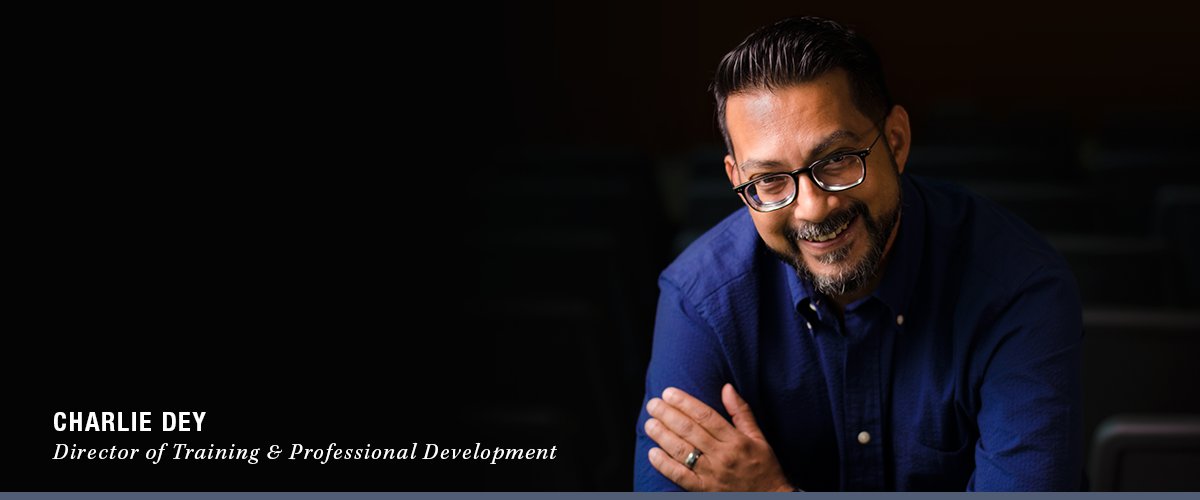People & Programs
Closing the Workforce Gap
Educating the next generation of supercomputing professionals

For science to thrive, it requires a skilled workforce of supercomputing professionals — in industry, academia, and at HPC centers — who can take advantage of computing power at the largest scales. To address this need, TACC offers a variety of training activities, from one-day workshops, to semester-long courses at UT Austin, to week-long, intense, immersive deep dives. In 2017, the center launched the TACC Institute Series, which has trained hundreds of people from all over the U.S. and abroad. Charlie Dey, TACC director of training and professional development, sat down with us for a Q&A about training and the TACC Institutes.
Why is TACC's Training Important for Today's Workforce?
More and more science is dependent on advanced computing resources. But compared to the growing need, a smaller and smaller percentage of scientists are capable of integrating advanced computing resources into their research. So there's a discrepancy in the percentage of the workforce needing advanced computing skills, and the actual percentage that have these skills. And with technologies changing so rapidly, without training and knowledge sharing, this discrepancy will only grow.
The point of our institutes is to reduce that discrepancy and broaden the number of people who can use advanced computing in their science, whether it's for research, industry, or as a facilitator.
What is the TACC Institute Series?
The TACC Institute Series is a series of one-week immersive training workshops held here at TACC. We've identified different topics that we specialize in — HPC leadership; visualization; advanced computing; designing and administering large-scale systems; machine learning; and computational techniques for data science. The institutes are taught by the experts at TACC using TACC systems. We want to essentially immerse participants in our environment, so they can learn the skills they need and see what our people do on a day-to-day basis.
What Makes the Institutes Special?
What makes the institutes really stand out is that they each focus on a different type of technology or approach. But they're all taught by a combination of people from different groups. At any given institute, we'll have someone from our large-scale systems group give a talk introducing the different systems at TACC. We might have someone from the visualization group come and talk about how one visualizes the data that one generates. Or someone from our HPC group might give an introduction to parallel programming. It's the combination of these people that makes the TACC Institute Series special.
TACC is more than just a 15,000-square-foot data center with over 20 HPC and advanced computing resources in it. TACC is really the people behind the scenes who put those resources together; apply their knowledge to build the software tools and packages that make those machines useable; build the portals through which thousands of scientists can access HPC; develop our cloud environments; and help scientists and engineers make ground-breaking discoveries.
Who are the Institutes for?
There's been a vast array of attendees from every field of science — a broad spectrum of students, researchers, post-docs, and even directors of other centers who have decided they want to come learn about what makes TACC great.
Some participants have been industry researchers. For instance, a developer from Intel came to our visualization institute to learn more about how to apply visualization to the work that Intel is doing.
Other participants have come from natural hazards research centers, trying to understand how to implement parallel programing and machine learning to solve their problems. A lot of students came this summer, because we introduced a student discount to try and get more students to learn different techniques here at TACC. So there's a range of different participants, and we strive to make sure the institutes are useful to all of them.
What's the Next Step for the Institutes?
I'd like to expand the role of the institutes and encourage more cross-pollination of concepts from our other departments. I think every institute can benefit from scientific visualization and a stronger data-intensive computing component. These are technologies and strategies that every domain science needs.
Also, I'd like to see a one-week institute focused mainly on undergraduate and graduate students. I want to make sure that the students aren't feeling overwhelmed by the introduction of unfamiliar concepts.
Being an instructor and lecturer at UT Austin, I've seen that it's not just the hard sciences that can benefit from advanced computing techniques. History majors can benefit from advanced computing, as can paleontologists, psychologists, and even artists.
There are so many ways the social sciences and liberal arts can benefit from our systems. What I'd love to do is create an introduction to advanced computing and have it applied beyond the hard sciences, beyond the typical advanced computing and HPC user. If we can get those students to understand how to use advanced computing techniques in their realms, I think we've done our job.
2019 Institutes Include:
Advanced Computing Foundations
Introductory level programming for advanced architectures (also available in web cast).
Advanced Computing Essentials
Intermediate level course exploring all aspects of advanced computing. Get hands on with MPI, OpenMP, machine learning, and much more. (Student rates available)
Designing and Administering Large-Scale Systems
Best practices for managing, maintaining, and building large-scale Linux clusters.
HPC Leadership
Tailored for managers and decision makers to enhance the use of advanced computing within their organizations.
Additional Week-Long Deep Dive Institutes
Machine Learning Foundations
Workflows & Reproducibility in Scientific Computing Applied Parallel Programming
Visualizing & Interacting with Data
Computational Science in the Cloud
For a full listing and details about TACC institutes, visit: useta.cc/institutes

